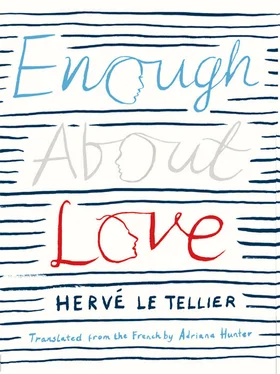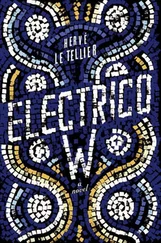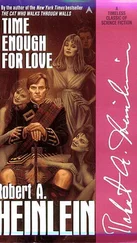Sag mir, wo die Männer sind
Where have all the young men one?
Was ist gescheh’n?
Long time ago
Sag mir, wo die Männer sind
Where have all the young men gone?
Zogen fort, der Krieg beginnt
Gone as soldiers every one
Wann wird man je versteh’n?
When will they ever learn?
Wann wird man je versteh’n?
When will they ever learn?
Louise stops singing, and all the other voices with her. Silence returns, palpable, dense. Somewhere in the room a woman presses a handkerchief over her eyelids, but she is too late, a tear runs down her cheek. She is not Louise’s mother. Louise steps down, not hurrying but not waiting for killer questions, which would be customary. There will not be any, they are so dumbstruck, floored, and the chairman — the writer and guest of honor — watches, disconcerted, as this blond little slip of a woman emerges from her dream, dry-eyed and smiling again, and walks toward her friends.
A young man stands up with a loud scrape of his chair, or rather — because he is so tall — he unfolds himself, and he starts to clap, first before anyone else. Some cry “Bravo” but he is crying “Thank you, thank you.” The young man’s name is Romain, Romain Vidal. He does not yet know Louise, he will meet her properly for the first time later, by chance. He came to the law courts to listen to lawyers jousting, for the fun of it. He does not know it yet, but he is applauding his wife.
As for Louise, the only Jewish thing about her is her name. Her paternal grandfather, Robert Blum, was raised a Jew but had little interest in faith, and married a pretty Breton girl, Françoise Le Guérec. Louise’s grandmother was charming but a bigot, and raised her two sons as Christians: in vain, for Augustin Blum, who doubted anyone could really walk on water or multiply loaves of bread, gave Louise and her sister a perfectly secular upbringing. But this grandfather whose name she bears, this Jew originally from Berlin who survived the roundup at the Vel d’Hiv 2and died when she was only eight, has always fascinated Louise. Her performance at the Berryer would be the final eruption of his identity.
2. The Velodrôme d’Hiver was a cycling stadium in Paris where, in July 1942, thirteen thousand Jews were rounded up, to be sent to the camp at Drancy.
• •
A T AGE THREE, little Yves could read. The child was looking over his grandfather’s shoulder when he asked what the word “Kennedy” meant (the article was about the revolution in Cuba). The grandfather immediately picked up the telephone to call his daughter: “You’ll never believe this! Your little Yves! He can read!”
At every important family gathering, Yves, eyes lowered and cheeks flushed with embarrassment, had to suffer the retelling of this “Kennedy affair,” glorified by his triumphantly proud mother.
Learning to write took him longer. He made few mistakes, but his writing was untidy, his letters irregular. From the age of twelve, Yves always kept a pad in his pocket. He would jot down a sentence overheard, a few lines of poetry, a new word that intrigued him. This urge to copy things down would never leave him. Soon afterward he kept notebooks, writing poems and short stories in them. It was only at thirty-two, the day after his daughter Julie was born, that he threw away the boxes filled with his early writings. No feeling of regret ever materialized.
Yves Janvier is walking through Paris with a new notebook in his pocket. The one he has now is light and hardcover, in black leather. This model usually lasts a couple of months. As he crosses the Île de la Cité and the flower market, he writes a few cramped, uneven, sloping lines, which he will have trouble reading when he comes to type them on the computer:
A passerby stops beside a painter in the Fontainebleau forest. The painter is Jean-Baptiste Corot. Find a date: 1855, 1860? The passerby looks at the painting, recognizes the fir trees in it, the silver birches, but, in the view before him, he cannot see the pond with twinkling water from the middle of the painting. He asks Corot where the pond is. Corot doesn’t even turn around but replies: “It’s behind me.” A parable. But about what? Maybe just tell it without relating it to anything.
His notebook contains other, more incomprehensible notes.
“Jupiter’s moons. Twelve. Some can be seen with the naked eye.” And “Being on the crest. Climbing up from the valley to be on the crest. No interest in the mountain per se.”
A few pages earlier, Yves Janvier also noted:
“What is it about the rain I like so much?”
“Why have I always hated having my picture taken?”
“We talk about overwhelmed and underwhelmed, but is anyone ever whelmed?”
“The left cerebral hemisphere controls speech (Paul Broca).”
“Abkhazian dominoes, the only game of dominoes where, if you can’t play, you are allowed to pick up a domino that’s already on the board.”
It will all be useful, perhaps.
It is worth listing the things that were sources of interest to Yves at one point or another: as with many children, it was dinosaurs that first fascinated him. His parents bought illustrated books for him, books “for his age group,” but he soon wanted more advanced material. When, aged nine, he saw an artist’s drawing in a newspaper, he was irritated by the anachronism of a pterodactyl wheeling above a herd of plateosauruses. Had he been abandoned in the middle of the Jurassic period he would easily have distinguished the very peaceful barosaurus from the no less placid camarasaurus. His family believed this was the start of a lasting interest, perhaps even a vocation, but after a visit to the botanical gardens, he turned his attention to carnivorous plants. Yves was immediately treated to his own hothouse, where for six months he fed a row of Venus flytraps on midges and crickets. Then came his hieroglyphics, cartouches, and reed pens period.
Yves’s curiosity is still alert, insatiable. Over the years he has learned a great deal about Ethiopian wildlife, prehistoric population migration, the evolution of sentence structure in Flaubert’s work, the harmonics of baroque scales, the early centuries of the Catholic Church, the poetry of the Grands Rhétoriqueurs, successive theories of color, the effects of gravitational pull close to black holes, the history of bebop and after-hours jazz, the logic of symbiotic relationships, unified theories of the universe, and even how to solve differential equations. Each area of research has him in its clutches for a few weeks, sometimes months. He buys books that give an overview, until he is irritated at having to reread in one a concept already explained in another, then he launches into understanding more detailed points. He turns his back on a subject once he has learned a great deal about it, and a new passion takes possession of him. He forgets a huge amount, he realizes that. So, anything he wants to use, such as Broca’s area which controls speech, he notes down so as not to forget, or rather so he can forget it. What he does remember is too often anecdotal. But then what is knowledge for a lot of people if not an organized accumulation of anecdotes?
Occasionally, if an inquisitive stranger — a taxi driver, a provincial hairdresser, a fellow passenger on a train — should ask him about his life, Yves invents a profession and constructs a life for himself, with the perfect impunity of anonymity. He fictionalizes out of courtesy, almost out of discretion. It is an opportunity to inventory his areas of expertise, to structure them for the sake of civilized conversation. He even tries to inspire the person he is talking to, coloring his voice with a genuine passion. Just for as long as it takes for the taxi to reach Place d’Italie — by the time they pass the rue Montmartre, he is one of Europe’s leading authorities on cryptobiosis in tardigrades.
Читать дальше












